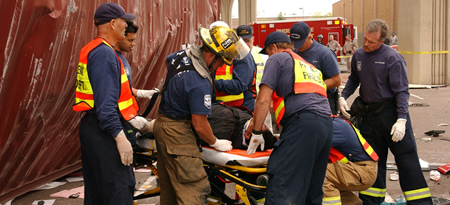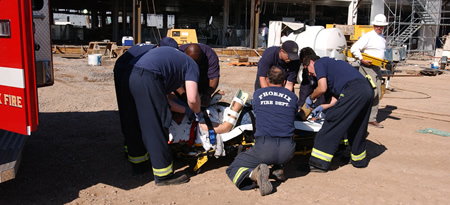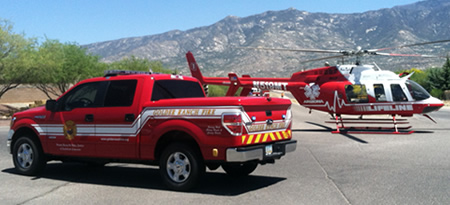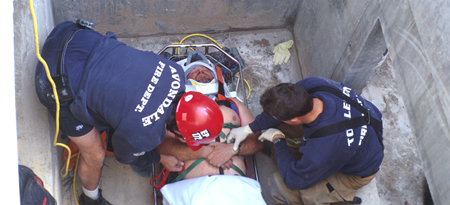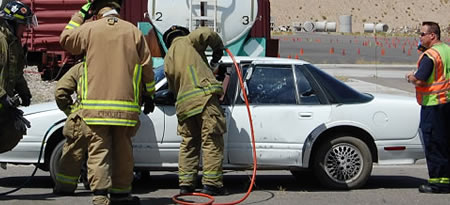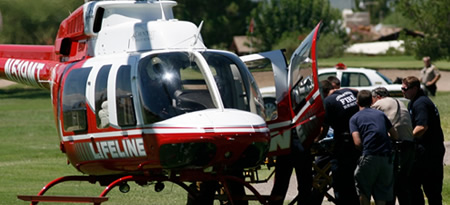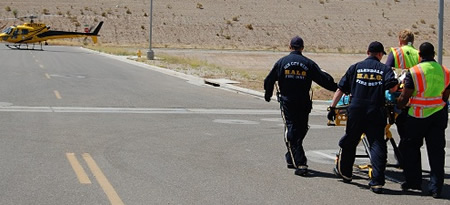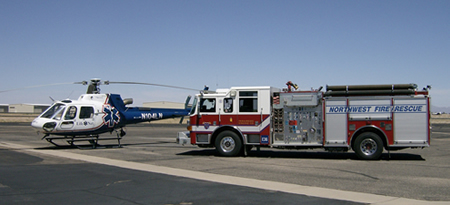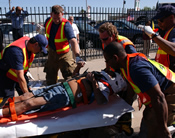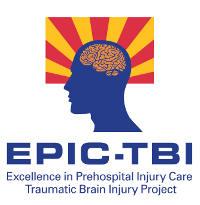
Excellence in Prehospital Injury Care (EPIC)
| EPIC findings have been published! EPIC4Kids shows dramatic improvement in severe pediatric TBI…700% HIGHER adjusted odds of survival after implementation of EPIC guidelines. Read about it HERE |
Announcing the Main EPIC Results:
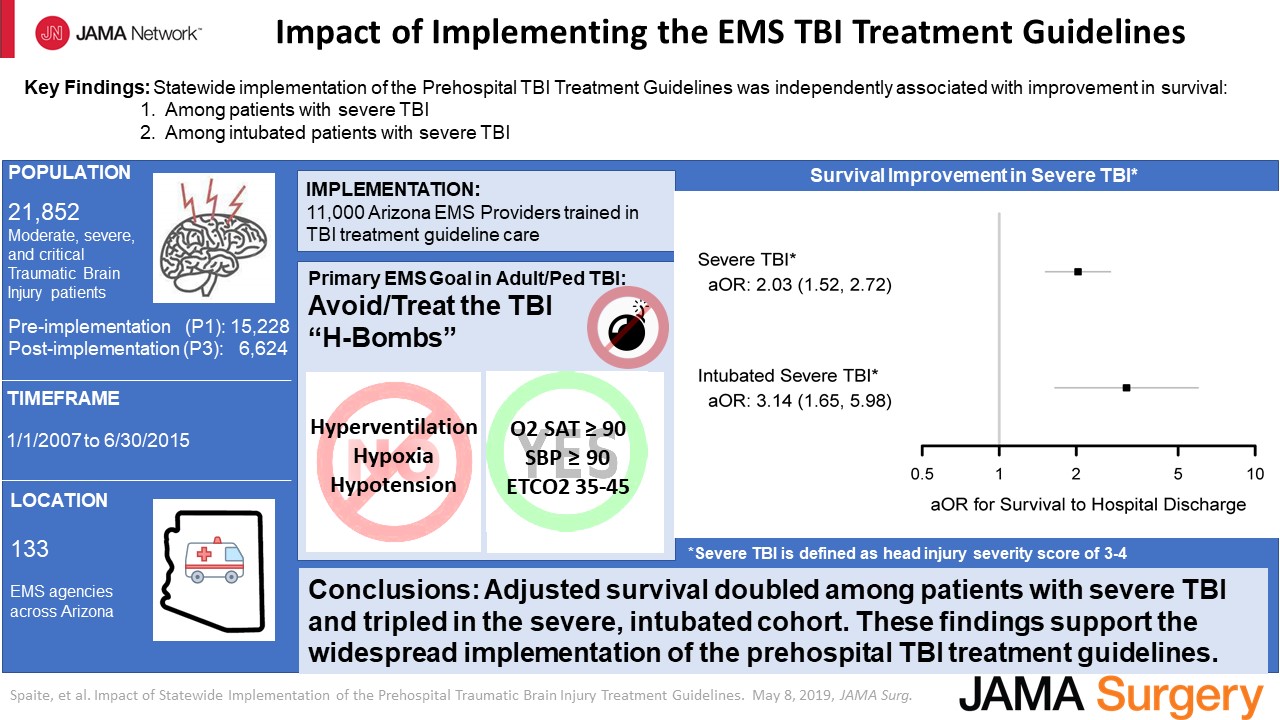
Click to read/download the full JAMA paper. 
Brief Summary of the Results
Background: The EPIC Project is a massive, NIH-funded, statewide effort involving The University of Arizona, the Arizona Department of Health Services, and over 130 fire departments, EMS agencies, and emergency medical helicopter agencies. In this public health initiative, the state-of-the-art prehospital Traumatic Brain Injury (TBI) treatment was implemented in the EMS systems across Arizona. As part of the implementation, the program trained over 11,000 Arizona paramedics and EMTs.
Objective: To evaluate the effect of implementing the evidence-based guidelines on outcomes in moderate, severe, and critical TBI. These guidelines emphasize avoidance/treatment of hypoxia (low blood oxygen level), prevention/correction of hyperventilation (breathing too fast/deep in patients who require assistance with their ventilation), and avoidance/treatment of hypotension (low blood pressure/shock).
Results: 21,852 patients were included in the effort. Among the patients with severe TBI [70% (15,147/21,681) of the entire study population and 76% (4970/6581) of the post-implementation cohort], adjusted survival to hospital discharge doubled statewide after implementation [adjusted odds ratio = 2.03 (1.52-2.72; p<0.0001)]. Among the severe patients who were intubated (required assistance with airway/ventilation), adjusted survival tripled [aOR = 3.14 (1.65-5.98; p=0.0005)].
Conclusions and Implications: EPIC is the first large-scale evaluation of the impact of the prehospital TBI Treatment Guidelines conducted anywhere in the world. It was accomplished through a unique partnership between The University of Arizona, the Arizona Department of Health Services, and more than 130 EMS agencies. In this statewide effort, the improvements in treatment were associated with dramatic improvement in survival among victims of severe TBI. These findings have significant implications for the prehospital treatment of severe TBI, worldwide, and support widespread implementation of the TBI guidelines.
